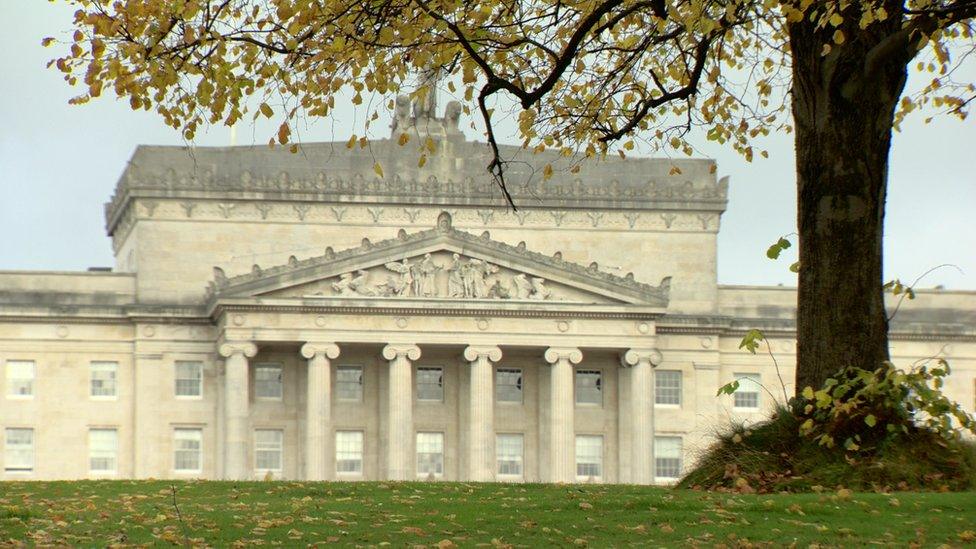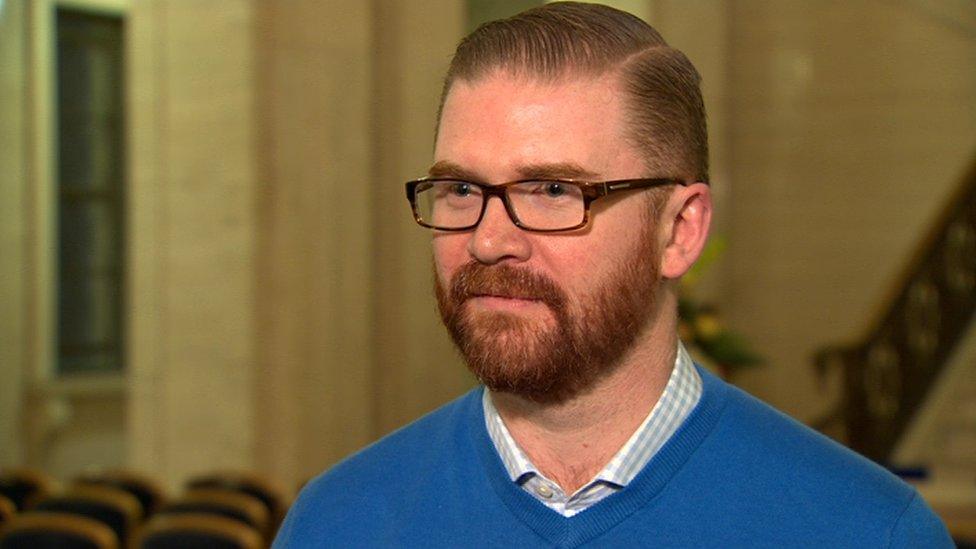Stormont talks: Villiers tells leaders 'It's make your mind up time'
- Published

The negotiations at Stormont have been going on for more than two months
The Northern Ireland Secretary of State has demanded politicians reach a deal on the Stormont talks this week.
Addressing political leaders on Monday, Theresa Villiers told political leaders it was "make your mind up time".
Ms Villiers, who has chaired 150 meetings in the process, said they have had "plenty of time to discuss the issues".
Talks between Northern Ireland's five main parties and the British and Irish governments have lasted 10 weeks.
The deputy first minister said negotiations, aimed at resolving the political crisis at Stormont, should not go beyond Wednesday.
Martin McGuinness said a sticking point is on institutions designed to deal with the legacy of the Troubles.
First Minister Peter Robinson said he was hopeful progress would be made during Monday and Tuesday.
The discussions are focusing on finance, paramilitary activity and how to deal with the legacy of the Northern Ireland conflict.
Mr McGuinness said the best thing local politicians could do is to forge an agreement this week.
He said the government needed to come up to the mark in meeting the concerns of victims about "national security" being used as a reason not to disclose information.
But he added that if the government did not do this, there is no reason why the politicians cannot press ahead on other issues on which progress has been made.

The story of Stormont's crisis
Stormont's political upheaval was sparked by allegations that Provisional IRA members were involved in the murder of Kevin McGuigan Sr
The row erupted after a senior Sinn Féin member was arrested as part of the inquiry into Mr McGuigan Sr's death. He was later released without charge.
Northern Ireland First Minister Peter Robinson stepped aside and all but one of his DUP ministers resigned
DUP ministers have since resumed their posts full time
Read more: How Stormont's crisis unfolded

A minute's silence was held at by MLAs at Stormont's Parliament Buildings on Monday morning as a mark of respect for the victims of Friday's gun and bomb attacks in Paris, in which 129 people were killed.
Afterwards, Mr Robinson said events in France heighten resolve to ensure that paramilitarism and terrorism in Northern Ireland is over once and for all.
Cross-party discussions began in September in a bid to resolve Northern Ireland's current political crisis.
That crisis erupted when police said they believed IRA members had been involved in the murder of a former IRA man in Belfast in August.
The parties have also been at loggerheads over the implementation of welfare reforms.
A welfare reform deal had been agreed almost a year ago, but Sinn Féin withdrew its support in March.
- Published13 November 2015
